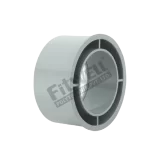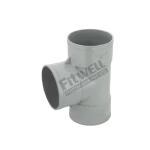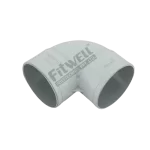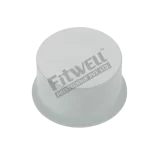Understanding Agricultural Irrigation Pipes: Types, Benefits, and Maintenance
Introduction
Irrigation systems are a vital component of agricultural operations across the globe. The choice of pipes, their maintenance, and overall management can significantly affect farm productivity and sustainability. This detailed article explores various aspects of agricultural pipes, offering insights into selection criteria, maintenance practices, and their effectiveness in different agricultural scenarios.
Which Pipes Are Suitable for Drip Irrigation Systems?
What are the key factors that make a pipe suitable for drip irrigation?
Pipes for drip irrigation must resist clogging, withstand environmental exposure, and maintain functionality under low pressure. Factors like the internal smoothness of the pipe, material durability against chemicals and UV radiation, and the ability to handle minor pressure fluctuations are crucial.
Are there specific materials recommended for drip irrigation systems?
Polyethylene (PE), particularly low-density polyethylene (LDPE), is widely recommended for drip irrigation systems due to its flexibility, chemical resistance, and ease of installation. PVC (polyvinyl chloride) and newer materials like linear low-density polyethylene (LLDPE) are also gaining popularity for their robustness and adaptability to various environmental conditions.
How Do I Choose the Right Pipe for Agricultural Use?
What irrigation methods impact the choice of pipe material?
The irrigation method dictates the type of pipe material suitable for use. For example, surface irrigation might prefer PVC due to its rigidity and durability, while subsurface irrigation could benefit from the use of more flexible materials like HDPE (high-density polyethylene) to resist soil pressure.
How does the terrain and crop type influence pipe selection?
Rough terrains require pipes that can withstand abrasion and potential mechanical damage, such as rubber or reinforced synthetic pipes. Crop type influences pipe choice through the required water quality and delivery rate; for instance, fruit crops requiring high water purity levels might necessitate pipes that do not leach chemicals.
What is the Average Lifespan of Agricultural Pipes?
Which factors determine the longevity of agricultural pipes?
Material composition, exposure to UV light, chemical interactions, and physical stresses (like those from soil weight and farming equipment) all influence pipe longevity. Properly manufactured and installed HDPE and PVC pipes can last over 20 years under ideal conditions.
How do regular maintenance and environmental conditions affect lifespan?
Regular cleaning, proper installation, and avoidance of excessive chemical exposure can extend a pipe’s operational lifespan. Environmental conditions such as extreme temperatures and UV exposure necessitate the use of materials specifically rated for such conditions to prevent premature degradation.
Which Pipes Are Suitable for Drip Irrigation Systems?
What are the key factors that make a pipe suitable for drip irrigation?
Pipes for drip irrigation must resist clogging, withstand environmental exposure, and maintain functionality under low pressure. Factors like the internal smoothness of the pipe, material durability against chemicals and UV radiation, and the ability to handle minor pressure fluctuations are crucial.
Are there specific materials recommended for drip irrigation systems?
Polyethylene (PE), particularly low-density polyethylene (LDPE), is widely recommended for drip irrigation systems due to its flexibility, chemical resistance, and ease of installation. PVC (polyvinyl chloride) and newer materials like linear low-density polyethylene (LLDPE) are also gaining popularity for their robustness and adaptability to various environmental conditions.
What Factors Should I Consider When Selecting Pipe Fittings?
How do material types (metal vs. plastic) affect the durability of fittings?
Metal fittings are generally more durable under high pressure and temperature variations. However, plastic fittings offer corrosion resistance and are more suitable for chemical applications. The choice between metal and plastic depends on the irrigation system’s specific requirements, including chemical exposure and pressure levels.
Are there specific fitting standards for high-pressure systems?
High-pressure systems require fittings that can withstand the system’s operational pressure without failure. Standards such as ISO 14236 for plastic pipes and ANSI/ASME for metal fittings provide guidelines for pressure ratings and dimensional specifications to ensure compatibility and safety in high-pressure environments.
What are the major functional differences between PVC and HDPE pipes?
PVC pipes are rigid, less expensive, and suitable for above-ground installations, making them ideal for static irrigation systems on flat terrains. HDPE pipes are more flexible, resistant to environmental stress cracks, and can be used in dynamic, rough terrain environments.
Are PVC Pipes Better Than HDPE Pipes for Irrigation?
Are there irrigation scenarios where PVC outperforms HDPE?
PVC is generally better for scenarios requiring high rigidity and where UV exposure is limited. It is preferred in settings where the system does not require frequent reconfiguration and can benefit from PVC’s higher pressure handling capabilities at a lower cost.
What Factors Should I Consider When Selecting Pipe Fittings?
How do material types (metal vs. plastic) affect the durability of fittings?
Metal fittings are generally more durable under high pressure and temperature variations. However, plastic fittings offer corrosion resistance and are more suitable for chemical applications. The choice between metal and plastic depends on the irrigation system’s specific requirements, including chemical exposure and pressure levels.
Are there specific fitting standards for high-pressure systems?
High-pressure systems require fittings that can withstand the system’s operational pressure without failure. Standards such as ISO 14236 for plastic pipes and ANSI/ASME for metal fittings provide guidelines for pressure ratings and dimensional specifications to ensure compatibility and safety in high-pressure environments.
What are the Advantages of Using Flexible Pipes in Agriculture?
How does flexibility contribute to pipe performance in uneven terrains?
Flexible pipes like those made from LLDPE adapt to uneven terrains without the risk of breaking. This flexibility prevents physical damage from external pressures, such as soil movement and agricultural activity, thereby maintaining the integrity of the irrigation system.
Are flexible pipes cost-effective for large-scale irrigation?
Yes, flexible pipes reduce the need for additional fittings and are easier and cheaper to install over large areas. Their durability and reduced maintenance requirements also make them cost-effective in the long term, particularly for extensive irrigation networks.
How Do I Maintain Pipes Used in Farm Irrigation Systems?
What are the best practices for cleaning and maintaining agricultural pipes?
Regular flushing of the system to remove debris, annual inspections to check for damage or degradation, and timely repairs are essential maintenance practices. Additionally, using water filters can prevent clogging and minimize the accumulation of sediments and contaminants.
How can farmers detect and fix leaks in irrigation pipes?
Farmers can detect leaks by monitoring for unexplained increases in water usage or wet spots along the pipe route. Leaks can often be repaired with patch kits for small damages or by replacing sections of pipe for larger issues. Regular pressure tests can also help identify leaks that are not visibly apparent.
Can Agricultural Pipes Withstand Harsh Weather Conditions?
Which pipe materials are best for resisting UV radiation?
Materials like HDPE, which can be treated with carbon black or other UV stabilizers, are highly resistant to UV radiation. This treatment extends the life of pipes used in above-ground applications where exposure to sunlight is significant.
How do pipes behave under extreme temperature fluctuations?
Pipes designed for agricultural use, particularly those made from HDPE and cross-linked polyethylene (PEX), can withstand extreme temperature fluctuations. Their thermal stability ensures that they do not become brittle in cold weather or overly soft in high temperatures, maintaining their functional integrity.
What is the Cost Comparison Between HDPE and PVC Pipes?
How do material costs impact the initial investment in HDPE vs. PVC pipes?
Irrigation systems are a vital component of agricultural operations across the globe. The choice of pipes, their maintenance, and overall management can significantly affect farm productivity and sustainability. This detailed article explores various aspects of agricultural pipes, offering insights into selection criteria, maintenance practices, and their effectiveness in different agricultural scenarios.
Are there significant differences in installation and long-term maintenance costs?
HDPE pipes, though more expensive to purchase, often have lower long-term maintenance costs due to their durability and resistance to environmental factors. PVC pipes, while cheaper initially, may require more frequent replacements and repairs, especially in harsh environmental conditions.
Which Pipe Material is Most Eco-Friendly for Irrigation Systems?
How do recycling options vary between PVC and HDPE pipes?
HDPE pipes are generally considered more eco-friendly due to their easier recycling processes. PVC recycling can be more complex and less environmentally friendly due to the presence of chlorine in the material.
Are there newer, sustainable alternatives to traditional pipe materials?
Yes, advancements in material science have led to the development of biodegradable and more environmentally sustainable pipe materials, such as bio-based polymers and composite materials that aim to reduce the environmental footprint of agricultural operations.
What are the Common Pipe Sizes Used in Agriculture?
What pipe sizes are typically used for drip irrigation systems?
Drip irrigation systems commonly use smaller diameter pipes, typically ranging from 0.5 to 1.5 inches. These sizes are optimal for maintaining the necessary pressure and flow rates required for efficient drip irrigation.
How does pipe diameter affect water flow and pressure?
Larger diameter pipes can carry more water at lower pressure, suitable for surface and sub-surface irrigation systems that cover large areas. Smaller diameters are preferable for systems requiring higher pressure, such as drip or sprinkler irrigation systems where precise water application is crucial.
How Do I Identify High-Quality Pipe Fittings?
What certifications should I look for when purchasing fittings?
Look for fittings that meet international standards such as the ISO 4427 for PE pipes and fittings, or ASTM standards for PVC and other plastic fittings. Certifications ensure the fittings have been tested for pressure, durability, and material quality.
How does the fitting’s material impact overall system performance?
The material of the fittings must be compatible with the pipe material to avoid chemical reactions, physical mismatches, or failures under pressure. Using mismatched materials can lead to leaks, bursts, or other failures that compromise the irrigation system.
What are the Top Manufacturers of Irrigation Pipes Globally?
Which brands specialize in innovative solutions for sustainable irrigation?
Brands like Jain Irrigation Systems, Netafim, and Toro are known for their innovative approaches to sustainable irrigation, offering highly efficient and water-conservative irrigation pipe solutions.
Are there regional manufacturers offering competitive quality?
Yes, many regions have local manufacturers who provide high-quality pipes at competitive prices. These manufacturers often offer products specialized for local agricultural conditions and needs, such as resistance to local environmental factors or compatibility with regional installation practices.
Are There Pipes Designed Specifically for Small-Scale Farming?
What are the most affordable materials for small-scale agricultural use?
Polyethylene and PVC are generally the most affordable options for small-scale farmers. These materials offer the necessary durability and functionality at a lower cost, making them accessible for smaller operations.
Are there pre-assembled pipe kits for smaller farms?
Yes, pre-assembled kits are available, which include all necessary pipes, fittings, and installation instructions. These kits are designed to be easy to install and are often tailored for small-scale applications, providing an efficient and cost-effective solution for small farmers.
How Do I Prevent Clogging in Irrigation Pipes?
What filters are most effective in reducing clogging?
Screen filters, sand media filters, and disk filters are effective at preventing debris, sand, and other particulates from entering the irrigation system, significantly reducing the risk of clogging.
Are there regular maintenance schedules to prevent blockages?
Establishing a regular maintenance schedule that includes checking and cleaning filters, flushing the system, and inspecting pipes and fittings can help prevent clogs and ensure the irrigation system operates efficiently.
What are the Benefits of Using Micro-Irrigation Pipes?
How does micro-irrigation enhance water conservation?
Micro-irrigation systems deliver water directly to the plant roots, significantly reducing evaporation and runoff. This method ensures that water is used efficiently, conserving water resources while maintaining optimal soil moisture.
Are there cost savings associated with switching to micro-irrigation?
Yes, micro-irrigation systems, while requiring a higher initial investment, can lead to substantial cost savings over time through reduced water usage, lower energy costs (in pumped systems), and increased crop yields due to more efficient water and nutrient use.
Which Pipes are Best for High-Pressure Irrigation Systems?
What material properties make pipes ideal for high-pressure systems?
Materials that can withstand high internal pressures without deforming or bursting, such as reinforced PVC, HDPE, and certain metals, are ideal for high-pressure irrigation systems.
Are there specific reinforcements available for handling pressure?
Yes, some high-pressure pipes are reinforced with materials such as fiberglass or have a multi-layered structure that includes a rigid core and flexible outer layers to handle the stress of high-pressure applications.
Are There Pipes Designed for Saline Water Irrigation?
What materials resist corrosion caused by saline water?
Materials like HDPE and certain grades of stainless steel are highly resistant to corrosion from saline water, making them suitable for use in coastal areas or in fields irrigated with saline water.
Are there coatings or treatments available for saltwater durability?
Yes, some pipes are treated with corrosion-resistant coatings or are manufactured from composite materials that include corrosion inhibitors to enhance their durability and lifespan in saline environments.
Manufacturing Process of CPVC Piping Systems
Conclusion
Choosing the right type of pipe for agricultural irrigation requires careful consideration of factors such as terrain, crop type, weather conditions, and budget. From rigid PVC pipes to flexible HDPE options, each material has its strengths and weaknesses that can affect the irrigation system’s longevity, efficiency, and cost-effectiveness.
In addition, regular maintenance practices like flushing, checking for leaks, and ensuring the proper functioning of fittings can extend the lifespan of agricultural pipes and ensure consistent water delivery. As new, eco-friendly materials emerge, farmers have more options to balance sustainability with performance.
Frequently asked questions
Here are answers to some frequently asked questions about Fitwell's plumbing services.
Low-density polyethylene (LDPE) is widely recommended for drip irrigation systems due to its flexibility, chemical resistance, and ease of installation. Other options include high-density polyethylene (HDPE) and PVC, depending on specific needs and environmental conditions.
Using filters, such as screen or disk filters, helps prevent debris from entering the pipes and clogging them. Regular maintenance, including flushing and inspecting the system for blockages, can also help prevent clogging.
PVC pipes are rigid and suitable for static, above-ground installations, whereas HDPE pipes are more flexible and resistant to environmental stress, making them ideal for buried or dynamic systems in uneven terrain.
The lifespan of agricultural pipes varies based on material, environmental conditions, and maintenance. With proper care, HDPE and PVC pipes can last 20 years or more.
HDPE is considered more eco-friendly due to its recyclability. Additionally, some manufacturers offer bio-based polymer pipes and other sustainable alternatives that reduce environmental impact.
Stay on the forefront of industry trends by checking out our latest content
Stay ahead with our latest content, designed to keep you informed on the newest industry trends and insights. Discover valuable updates that help you lead in your field.

FRP Manhole Covers vs. Traditional Materials: A Data-Driven Comparison
FRP Manhole Covers vs. Traditional Materials: A Data-Driven Comparison Introduction As cities expand and infrastructure needs evolve, the demand for durable, eco-friendly, and cost-effective solutions has increased. One area where

PVC Service Saddles: The Hidden Champion of Network Maintenance
PVC Service Saddles: The Hidden Champion of Network Maintenance Introduction An efficient plumbing system is crucial for the smooth distribution of water, gas, or other fluids in residential, commercial, and

MDPE Fittings: Everything You Need to Know
MDPE vs. Traditional Piping: 32% Maintenance Cost Savings Introduction MDPE (Medium-Density Polyethylene) fittings have become an integral part of modern plumbing, irrigation, and gas distribution systems. Known for their flexibility,
Request a Free Consultation
Get personalized plumbing solutions with a free consultation from Fitwell.

